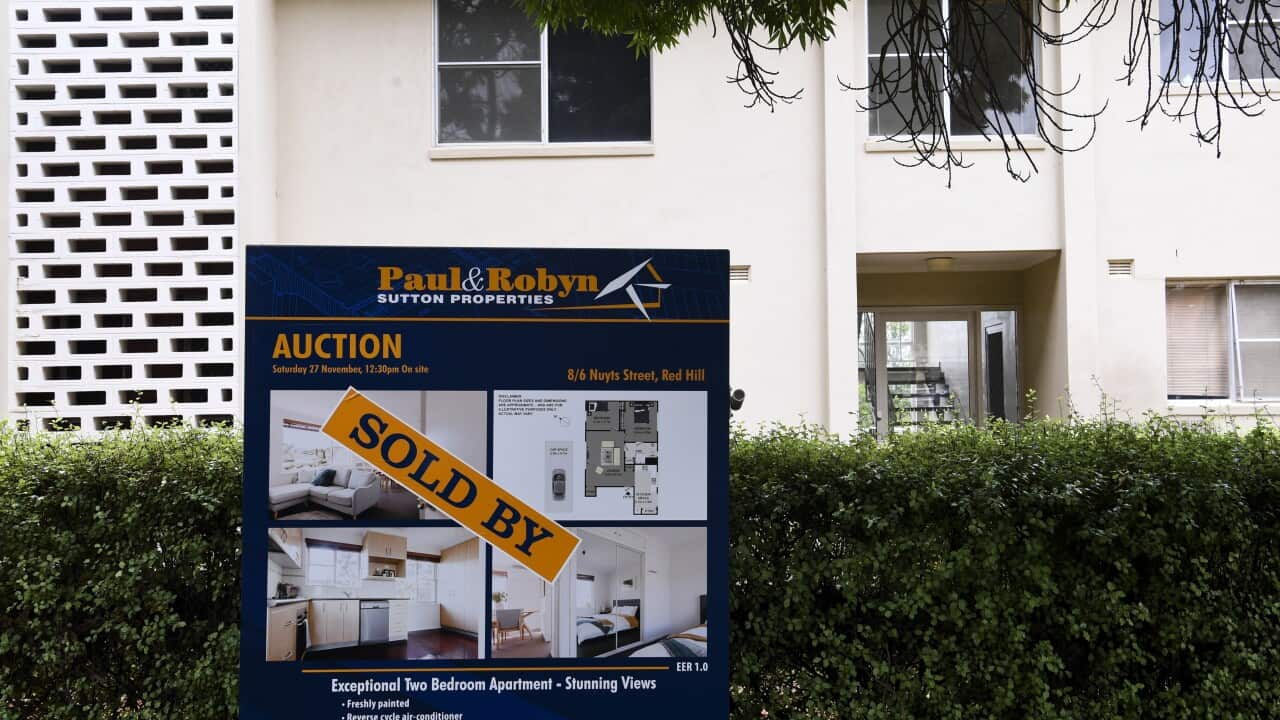The federal government will use this week's budget to expand its Home Guarantee Scheme to help more Australians buy their first home, as well as setting aside $17.9 billion for infrastructure spending.
The Home Guarantee Scheme will be almost doubled to 50,000 places per year.
Some 35,000 places will be available per year under the First Home Guarantee Scheme from 1 July, to support first home buyers with a deposit of at least 5 per cent to purchase a new or existing home.
Places for the Family Home Guarantee for single parents with a deposit of as little as 2 per cent will rise to 5,000 each year, while a new Regional Home Guarantee will support 10,000 people - including non-first home buyers and permanent residents - to build or purchase a new property in Australia's regions.
Income caps will remain at $125,000 for singles and $200,000 for couples.
Treasurer Josh Frydenberg said the expansion of the scheme will help "make homeownership a reality for thousands more Australians".
"This means helping more single parents buy a home with a deposit as low as two per cent and helping more first home buyers with a deposit as low as five per cent," he said.
"We're also supporting those in our regions, with 10,000 places per year under a new Regional Home Guarantee to assist eligible home buyers purchase or construct a new home in regional areas."
Tuesday's budget will also include a further $17.9 billion for new and existing infrastructure projects under the federal government's 10-year rolling investment pipeline.
The overall program will now stand at a record $120 billion.

The federal government will announce billions for national road and rail projects in the Budget. (AAP)
"Continuing to provide record future funding for road and rail projects is a key part of our economic plan for the long term to keep our economy strong," Mr Morrison said.
"By investing in these projects we are delivering the infrastructure that the Australian economy needs to grow, to get Australians home sooner and safer, and generate thousands of jobs and new opportunities for small businesses right across the country."
Deputy Prime Minister Barnaby Joyce said the government was investing in projects that will drive the growth of industries that generate the wealth of the nation.
"Getting more commodities to ports and sending them overseas will generate more export income, making our nation wealthier and stronger. Better roads and infrastructure will enable that." Mr Joyce said.
The latest announcements ahead of Tuesday's budget come on top of a host of commitments in recent weeks worth tens of billions of dollars.
But Mr Frydenberg said there will still be a significant improvement in the budget bottom line, the dividend of a strong economy.
He said there will be support measures for households who are facing cost of living pressures.
While Mr Frydenberg was light on detail in a series of television interviews on Sunday, he appeared to suggest there would be a temporary cut in the fuel excise with the price of petrol now more than $2 a litre.
Opposition finance spokeswoman Katy Gallagher said Labor would be looking for a genuine response to some cost of living pressures, rather than a short term political fix.
"Forgive us for being a bit cynical about some of this being rolled out in the face of an election when they've had 10 years, essentially, to deal with some of these emerging pressures," she told Sky News' Sunday Agenda program.
Business Council of Australia chief executive Jennifer Westacott said the budget must lay the groundwork to supercharge investment and exploit the nation's strengths.
"Opportunities in areas like renewable energy, the technology revolution and growth in the bioeconomy can be sources of new growth and new jobs for Australia - but we'll have to beat other nations to them," she said.
"We know we can do this because many Australian businesses are already at the cutting edge but it will mean outcompeting larger nations with deeper employment pools."
Pointing to Pottinger research commissioned by the BCA, Ms Westacott said acute worker shortages and supply chain issues need to be urgently addressed.
"The shortage of workers is creating havoc for large and small businesses across the nation's critical supply chains and contributing to inflationary pressures," she said.












